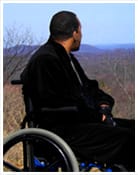Oftentimes, those in New York who fall on someone else’s property fail to make use of the systems in place for their protection. For example, even though they might suffer a brain injury or break a bone when they fall, they might leave the business where they fell to seek medical care without first reporting the incident. They may use their own insurance or resources to pay for treatment and use paid time off benefits to replace lost wages.
When a slip-and-fall occurs, whether it happens inside a business as someone shops or outside as they load their vehicle, the person injured sometimes has the right to hold the business or property owner accountable for the harm they’ve suffered.
When the business or property owner was negligent
A slip-and-fall incident can happen just about anywhere, but certain kinds of negligence increase the risk. For example, understaffing at a retail business has a strong association with reduced standards for the facility and a greater risk of someone falling. Workers may not have time to attend to spills or replace saturated rugs by the entranceway when there aren’t enough workers on hand to assist all of the customers visiting. Understaffing can also influence outdoor facility maintenance, including clearing snow and ice from sidewalks and parking lots. If businesses do not outsource these tasks to another company, employees may not have the time to proactively keep exterior spaces safe during and after winter weather.
Provided that the person hurt in the slip-and-fall incident can show that negligence played a role in their injury, they may be able to pursue a financial claim against the property owner or business. The basic standard for negligence is whether a reasonable person would agree that one party did something unsafe or failed to do something necessary for safety. Situations involving understaffing and dirty or icy facilities would very likely meet the definition of negligence.
The rules can be a bit different for outdoor spaces as opposed to indoor spaces. New York City, for example, requires prompt removal with several different standard turnaround times depending on when the snow falls. Statutes about snow and ice removal vary between municipalities, but state rules regarding personal injury lawsuits are the same in all New York jurisdictions.
If someone hurt in a slip-and-fall incident can convince the courts that the negligence of a property owner or business played a significant role in the incident, they may have the necessary grounds to pursue a premises liability lawsuit. Reporting a slip-and-fall when it occurs, seeking out proper medical care and knowing one’s rights can all help those who are hurt at a dangerous property to potentially hold the owner or occupant of the property accountable for that harm.

